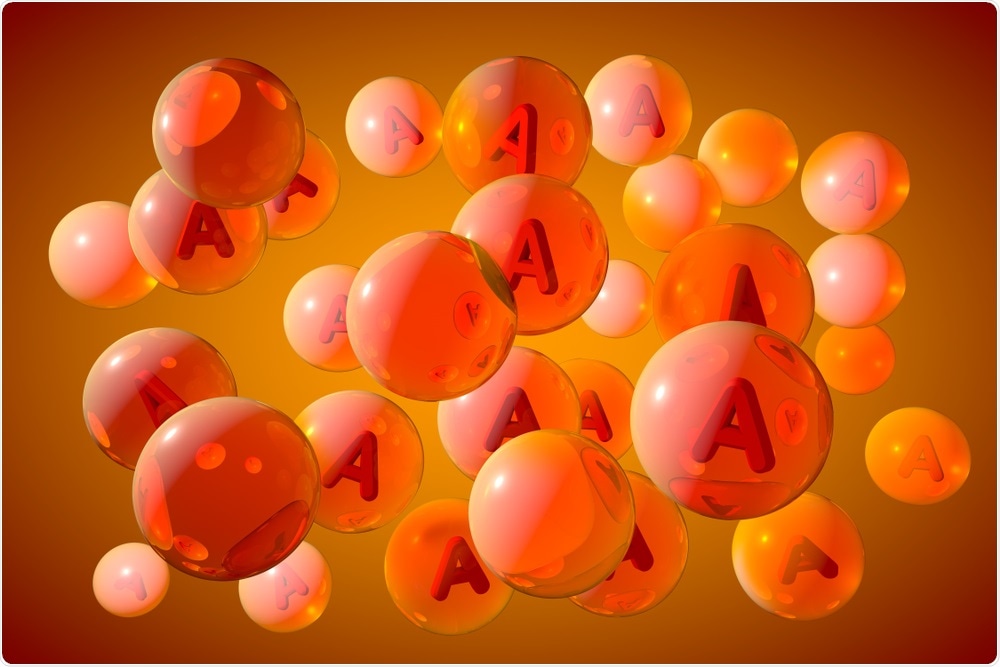Increasing the intake of dietary vitamin A may reduce the risk of developing cutaneous squamous cell carcinoma (SCC), according to a new study recently published in JAMA Dermatology. The study found an inverse association between dietary vitamin A intake and cutaneous SCC risk, suggesting that the vitamin may help to protect against the cancer.
“Future studies are needed to determine whether vitamin A supplementation has a role in chemoprevention of SCC,” writes Eunyoung Cho (Warren Alpert Medical School of Brown University, Rhode Island) and international collaborators.
 Maryna Olyak | Shutterstock
Maryna Olyak | Shutterstock
What is squamous cell carcinoma (SCC)?
SCC is a common skin cancer amongst fair-skinned people, with an estimated lifetime incidence among this population of up to 11% in the United States.
Well-known risk factors for SCC are age, skin type and exposure to UV rays from sunlight. This type of cancer most commonly develops on areas of skin exposed to the most sunlight such as the head and face.
Over recent decades, the incidence of SCC has increased, possibly due to increased life expectancy, greater exposure to sunlight and other lifestyle changes. Prevention and early detection of SCC are vital due to the risk of metastasis.
What is vitamin A?
Vitamin A refers to a large group of related compounds called retinoids, bioactive forms of vitamin A that are involved in maintaining epithelial maturation and differentiation. The compounds can be divided into two groups based on the food source they are found in.
Vitamin A derived from animals is called retinol, a fat-soluble compound that is the precursor for the most active form of vitamin A – retinoic acid.
Vitamin A derived from fruits is known as provitamin A; a carotenoid and includes beta carotene, beta carotene, alpha-carotene, and beta-cryptoxanthin, compounds that the body can be covert into retinol. However, the majority of carotenoids are non-provitamin A and these include lutein, zeaxanthin, and lycopene.
As well as retinol being essential for promoting the growth, maintenance and differentiation of epithelial cells, retinoids are involved in regulating gene transcription and introduce changes that could potentially reduce cell growth and help prevent malignancy.
Retinoids are also known to block growth-stimulating signals and to trigger multiple downstream signaling pathways that regulate apoptosis and cell differentiation in both cancerous and precancerous lesions.
Concerns about synthetic retinoids as chemopreventative agents
Synthetic retinoids are considered chemopreventative agents and some clinical trials testing their use on nonmelanoma skin cancer (such as SCC) among high-risk populations have found them to be effective.
The daily use of synthetic retinoids such as oral acitretin is therefore recommended for the prevention of such cancers among high-risk populations.
However, synthetic retinoids are also associated with significant adverse side effects such as high blood cholesterol, liver dysfunction, musculoskeletal pain, headaches and hair loss.
Dietary vitamin A as an alternative to synthetic retinoids
Epidemiologic studies of the association between vitamin A or carotenoid intake and SCC risk have been limited and often inconsistent.
For example, an analysis of the Nurses’ Health Study (NHS) and the Health Professionals Follow-up Study (HFPS) found no link between retinol intake and the incidence of SCC incidence. However, the follow-up period was only 14 years among women and 10 years among men, which may not have been sufficient to indicate any benefit of vitamin A, given how slow-growing SCC is.
Now, Cho and colleagues have used NHS and HFPS data covering longer follow-up periods (1984-2012 and 1986-2012, respectively) and larger sample size to reassess the association between intakes of vitamin A, retinol, and carotenoids and the risk of developing SCC.
Among the 75,170 women (mean age 50.4 years) in the NHS and 48,400 men (mean age 54.3 years) in the HPFS, 3,978 cases of SCC were documented.
Increasing vitamin A and carotenoids may reduce the risk of skin cancer
Cho and team report that an increased total intake of vitamin A intake was associated with a decrease in SCC risk.
Compared with the lowest quintile for vitamin A intake (quintile 1), the pooled multivariate hazard ratios for the increasing quintiles of vitamin A intake were 0.97 for quintiles 2 and 3, falling to 0.93 for quintile 4 and 0.83 for quintile 5.
An increased intake of retinol and some carotenoids was also associated with a decrease in the risk for SCC. The pooled HRs for the highest versus lowest quintiles of intake were 0.88 for total retinol, 0.86 for beta-cryptoxanthin, 0.87 for lycopene, and 0.89 for lutein and zeaxanthin.
The results were generally consistent between men and women, but the inverse associations seemed to be more prominent among people with moles, burns or those who had experienced a blistering sunburn reaction as children or adolescents.
The authors suggest that since the synthetic retinoids used in chemoprevention of SCC in high-risk populations are associated with adverse health effects, dietary vitamin A could be investigated as an alternative in both high-risk and general populations.
However, they also point out that while an increased vitamin A intake be effective as a chemopreventative agent for skin cancer, its high intake could also be associated adverse health effects such as an increased risk for osteoporosis or hip fracture.
The team concludes:
More research is needed to understand the appropriate level of vitamin A intake for maximum health benefits. Therefore, risks and benefits of high vitamin A intake should be considered individually.”
Journal reference:
Kim, J., et al. (2019). Association of Vitamin A Intake With Cutaneous Squamous Cell Carcinoma Risk in the United States. JAMA. DOI:10.1001/jamadermatol.2019.1937